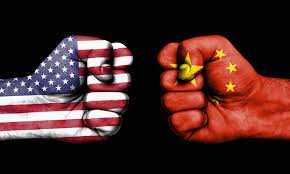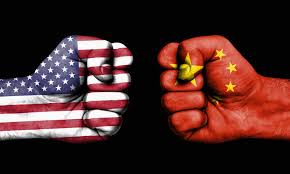
Even as China retaliates the U.S. announcement of tariffs on Chinese products in the same coin thereby invoking fears of the full blow trade war between the two largest economies of the world, this brewing trade war is proving to be a potential benefit for the Middle East.
Purchasers of polyethylene and liquid propane in China would be required to seek out other sources for buying the materials in case China goes ahead with the imposition of a 25 per cent tariff on those two materials which are incidentally on the list of the 106 goods imported from the U.S. into China that are to be taxed heavily. The tariffs would obviously make the U.S. products costlier for Chinese buyers. And it is evident that the potential substitution requirements could be catered to very well by the energy-rich Middle East which also has plenty of petrochemical supplies and byproducts.
Polyethylene is one of the most commonly used forms of plastic globally and the Middle East already accounts as the largest seller to China of the product. And according to Goldman Sachs Group Inc, along with South Korea – another large producer of the material, exports from the Middle East could be further boosted if the tariffs are imposed. The bank noted that if the tariffs are implemented, about 2.3 million metric tons of PE imported form the U.S. would be needed ot be replaced by China next year.
Goldman estimates that every year, about .7 million tons of the product is imported by China but the U.S. share on that is just about 600,000 tons. But the bank noted that over the next two years, in case no tariffs are imposed, there are chances of a threefold increase in the purchases from the U.S.
On the other hand, China is the third largest importer of the U.S. when it comes to propane. And in recent years, the amount of propane exported to China from the U.S. have been boosted significantly. While it is a fact that the proposed tariffs by China on the two products would not impact the U.S. as much as China would want to, according to industry consultant Energy Aspects Ltd., the Middle East would be the most likely alternative option for China for the product because the region is increasing its capacity for production of the two products.
And according to FGE consultant Ong Han Wee, one of the major beneficiaries, as it stands out, could be Iran because it would be able to sell the gas at a discount to regional contract prices. “Iran is an attractive alternative,” he said. “Chinese companies will have to diversify their supply sources more toward Iran.”
(Source:www.bloomberg.com)
Purchasers of polyethylene and liquid propane in China would be required to seek out other sources for buying the materials in case China goes ahead with the imposition of a 25 per cent tariff on those two materials which are incidentally on the list of the 106 goods imported from the U.S. into China that are to be taxed heavily. The tariffs would obviously make the U.S. products costlier for Chinese buyers. And it is evident that the potential substitution requirements could be catered to very well by the energy-rich Middle East which also has plenty of petrochemical supplies and byproducts.
Polyethylene is one of the most commonly used forms of plastic globally and the Middle East already accounts as the largest seller to China of the product. And according to Goldman Sachs Group Inc, along with South Korea – another large producer of the material, exports from the Middle East could be further boosted if the tariffs are imposed. The bank noted that if the tariffs are implemented, about 2.3 million metric tons of PE imported form the U.S. would be needed ot be replaced by China next year.
Goldman estimates that every year, about .7 million tons of the product is imported by China but the U.S. share on that is just about 600,000 tons. But the bank noted that over the next two years, in case no tariffs are imposed, there are chances of a threefold increase in the purchases from the U.S.
On the other hand, China is the third largest importer of the U.S. when it comes to propane. And in recent years, the amount of propane exported to China from the U.S. have been boosted significantly. While it is a fact that the proposed tariffs by China on the two products would not impact the U.S. as much as China would want to, according to industry consultant Energy Aspects Ltd., the Middle East would be the most likely alternative option for China for the product because the region is increasing its capacity for production of the two products.
And according to FGE consultant Ong Han Wee, one of the major beneficiaries, as it stands out, could be Iran because it would be able to sell the gas at a discount to regional contract prices. “Iran is an attractive alternative,” he said. “Chinese companies will have to diversify their supply sources more toward Iran.”
(Source:www.bloomberg.com)














